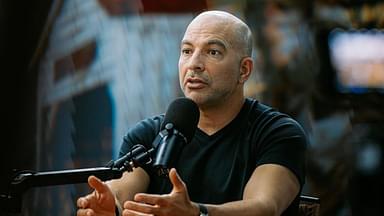The subject of sugar substitutes and their alleged toxicity that have shown up in certain studies has alarmed the health and wellness world. Amidst many medical practitioners and wellness coaches, physician Dr. Peter Attia had his two cents to contribute to the discussion.
In his recent podcast, Dr Attia talked about the role of sugar substitutes like aspartame, xylitol, and several others that are present in drinks like Diet Coke. Due to studies on animals where these substitutes resulted in some dangerous outcomes, such as tumor formations, people had been nervous about their consumption.
However, Dr. Attia clarified that the key to it all was in the dosage of these ingredients. Experimental animals were reportedly being served a larger-than-normal dose of the substitutes. Anything in excess could be toxic to humans, and he went by that logic to help explain the studies that caused panic.
If people were to voice their concerns over the subject, Dr. Attia suggested questioning the role of these substitutes in gut health and metabolism. Their link to issues in these two areas is, according to him, more concerning than the animal studies.
“The first generation versions of these… seem to have a slightly negative effect on those parameters are controlled…conversely, the…newer ones…appear to have less detrimental effects.*
Dr. Attia’s reasoning for a mixed opinion on sugar substitutes was straightforward – he, for one, firmly believed that it was difficult to arrange for supplements that did not even have traces of them in their ingredients. Secondly, the best way to avoid the negative effects of these sugar substitutes, if they weren’t working out for someone, was to simply eliminate them entirely.
“My advice to people who are consuming lots of artificial sweeteners who are struggling with glycemic control, body weight…is substitute them out…just get rid of it.”
Artificial sweeteners have a lot more to them than just appearing in studies that portray their links with cancer. In an old conversation with neuroscientist Dr. Andrew Huberman, he spoke about how these ingredients could tamper with one’s appetite.
Dr. Peter Attia and Dr. Andrew Huberman Discuss the Effects of Artificial Sweeteners on Hunger
Apart from carrying a rogue image of their effects on several body functions, artificial sweeteners seemed to have also gained a negative rapport with health experts. In his podcast, Dr. Huberman spoke to Dr. Attia about how they distort one’s perception of hunger.
It turns out that there have been several studies linking artificial sweeteners with a ‘cephalic insulin response’. This meant they could mess with an individual’s appetite, potentially making them hungrier. Dr. Attia ended his opinion with a ‘buyer beware’ warning since these elements could wreck one’s brain and gut chemistry.






